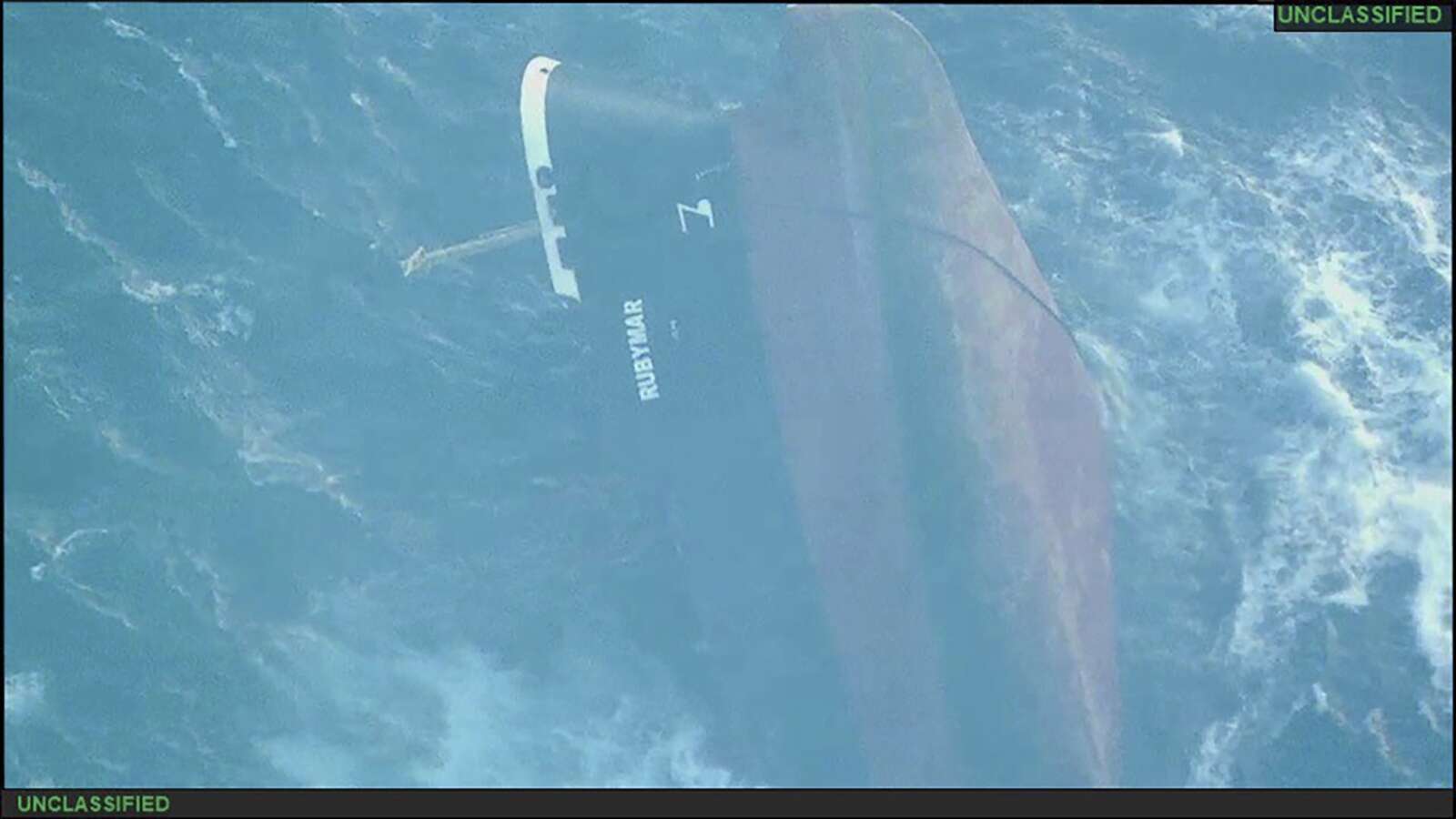
Three Red Sea underwater data cables have been cut as Houthi attacks continue
Three Red Sea underwater cables providing internet and telecommunications around the world have been cut as the waterway remains a target of Yemen’s Houthi rebels, officials said on Monday.
A statement by Hong Kong-based HGC Global Communications acknowledged the cuts but did not say what caused the lines to be severed. There has been concern about the cables being targeted in the Houthi campaign, which the rebels describe as an effort to pressure Israel to end its war on Hamas in the Gaza Strip. The Houthis have denied attacking the lines, however.
While global shipping has already been disrupted through the Red Sea, a crucial route for cargo and energy shipments from Asia and the Middle East to Europe, the sabotage of telecommunication lines could further escalate the monthslong crisis.
The cut lines include Asia-Africa-Europe 1, the Europe India Gateway, Seacom and TGN-Gulf, HGC Global Communications said. It described the cuts as affecting 25% of the traffic flowing through the Red Sea. It described the Red Sea route as crucial for data moving from Asia to Europe and said it had begun rerouting traffic.
HGC Global Communications described the Seacom-TGN-Gulf line as being two separate cables when it is actually one at the area of the cut, according to Tim Stronge, a subsea cable expert with TeleGeography, a Washington-based telecommunications market research company.
Responding to questions from The Associated Press, Seacom said that “initial testing indicates the affected segment lies within Yemeni maritime jurisdictions in the Southern Red Sea.” It said it was rerouting the traffic it was able to change, though some services were down.
Tata Communications, part of the Indian conglomerate and behind the Seacom-TGN-Gulf line, told the AP it “initiated immediate and appropriate remedial actions” after the line was cut.
“We invest in various cable consortiums to increase our diversity and hence in such situations of a cable cut or snag, we are able to automatically reroute our services,” Tata said.
Other firms behind those lines, which provide data to Africa, Asia and the Middle East, did not immediately respond to queries Monday from the AP.
In early February, Yemen’s internationally recognized government in exile alleged that the Houthis planned to attack the cables. The lines appeared to have been cut on Feb. 24, with the organization NetBlocks noticing internet access in the East African nation of Djibouti suffering from interruptions two days later. Seacom serves Djibouti.
But for their part, the Houthis have denied targeting the cables. The rebels blamed the disruptions on British and US military operations but did not offer evidence to support the allegation and have made false claims in the past.
“The hostilities on Yemen by the British and US naval military units caused a disruption in the submarine cables in the Red Sea, which jeopardized the security and safety of international communications and the normal flow of information,” the Houthi-controlled Transportation Ministry in Yemen’s rebel-held capital, Sanaa, alleged.
Since November, the rebels have repeatedly targeted ships in the Red Sea and surrounding waters over the Israel-Hamas war. Those vessels have included at least one with cargo bound for Iran, the Houthis’ main benefactor, and an aid ship later bound for Houthi-controlled territory.
Despite more than a month and a half of US-led airstrikes, Houthi rebels have remained capable of launching significant attacks. They include the attack last month on a cargo ship carrying fertiliser, the Rubymar, which sank on Saturday after drifting for several days, and the downing of an American drone worth tens of millions of dollars.
Meanwhile, the British military’s United Kingdom Maritime Trade Operations centre on Monday separately warned of a new attack in the Gulf of Aden. The private security firm Ambrey described the vessel targeted as a Liberia-flagged, Israel-affiliated container ship that sustained damage and issued a distress call.
The Houthis did not immediately claim the attack, but it typically takes them several hours before they acknowledge an assault.
It remains unclear how the Houthis could attack the subsea cables themselves. The rebels are not known to have the diving or salvage capability to target the lines, which sit hundreds of meters (feet) below the surface of the waterway.
However, subsea cables can be cut by anchors, including those dropped from some of the ships that have been disabled in attacks. A drifting ship with its anchor scraping the sea could be the culprit.
News Related-
AWS and Clarity AI to use generative AI to boost sustainable investments
-
Ref Watch: 'Enough' of a foul to disallow Man City goal vs Liverpool
-
Day in the Life: Ex-England rugby star on organising this year's Emirates Dubai Sevens
-
Pandya returns to MI, Green goes to RCB
-
Snowstorm kills eight in Ukraine and Moldova, hundreds of towns lose power
-
‘This is why fewer Sikhs visiting gurdwaras abroad’: BJP after Indian envoy heckled in Long Island
-
Inside a Dubai home with upcycled furniture and zero waste
-
Captain Turner aims for Pitch 1 return as JESS bid to retain Dubai Sevens U19 crown
-
No Antoine Dupont but Dubai still set to launch new era for sevens
-
Why ESG investors are concerned about AI
-
Your campsite can harm the environment
-
Mubadala, Saudi Fund deals on US radar for potential China angle
-
Abu Dhabi T10 season seven to kick off with thrilling double-header
-
Eight climate fiction, or cli-fi, books to consider before Cop28
